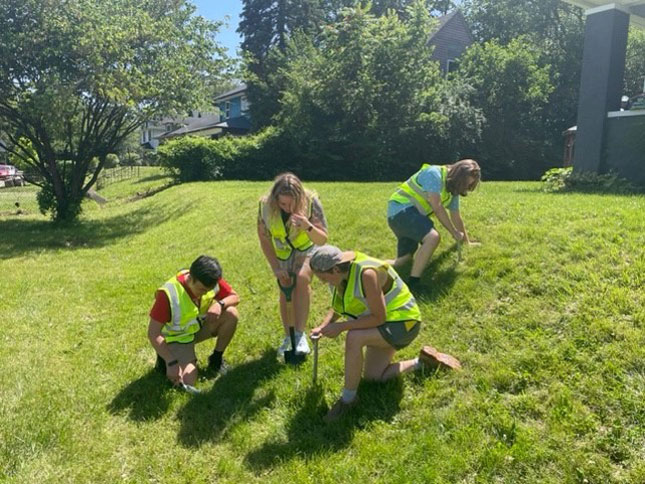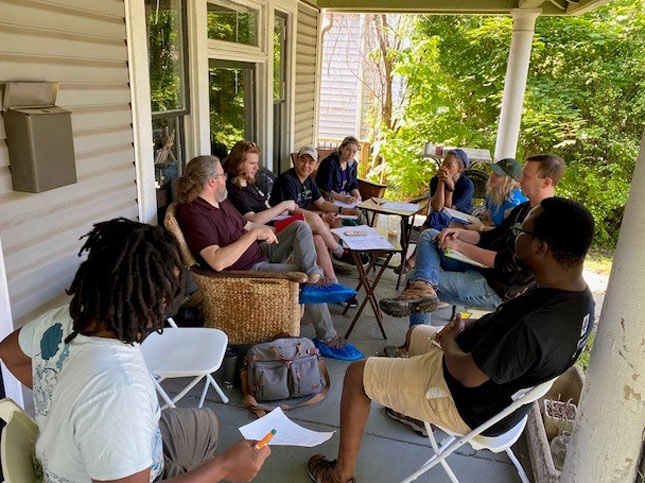Themes and topics
Using field and lab techniques, teamwork and organizational skills, and data management and interpretation, we will explore many factors affecting the earth and human interactions with our environment.
Hydrogeology — hydrology, water scarcity, wetland delineation, glacial deposits and aquifers, field water chemistry, groundwater and contamination, fluid flow.
Fundamentals of surface and subsurface geology — structural geology, stratigraphy, 3-D mapping, sedimentology, geomorphology, geochemistry, geophysics, geodesy, subsurface relationships.
Environmental science — environmental policy, environmental concepts, risk assessments, environmental management, remediation.
Earth systems — Earth as an integrated system with people & society, renewables and recycling, resources and sustainability.
Earth materials — minerals, rocks, water, chemicals, anthropogenic materials soils, microbiology, plant ID, botany, ecology, microbiology, dust, atmosphere, heat flow.
Climate change and climate science — climate change, global warming, physics of climate, climate solutions.
Environmental justice — Earth system functions and disproportionate impacts, mitigation and action planning/ community coordination.



